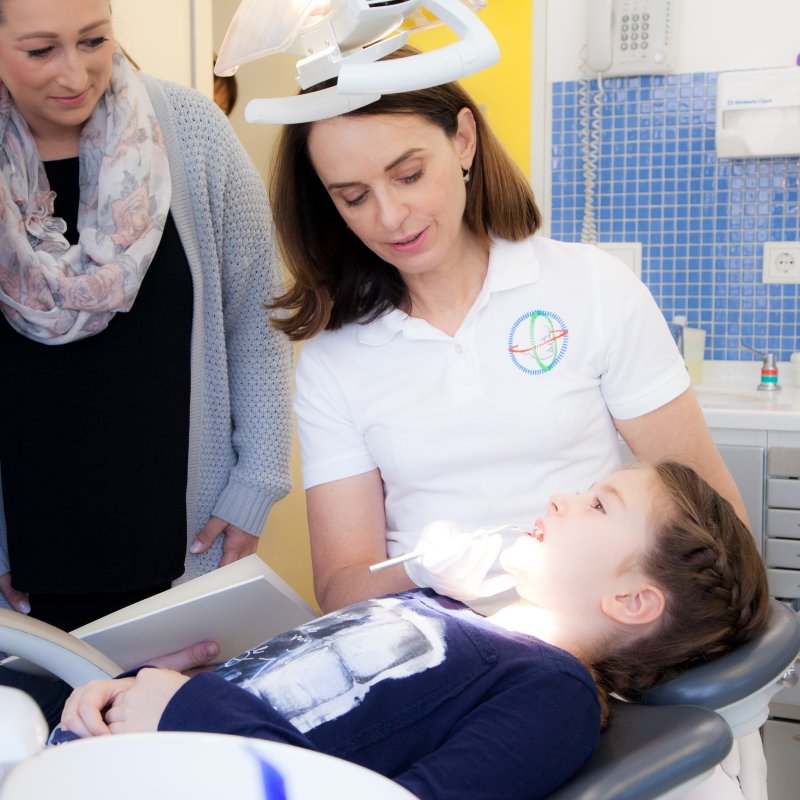
In the case of certain maldevelopments of the dentition, orthodontic treatment is started in the early primary dentition (from the age of 4).
This is a preventive treatment, so that the normal growth of the jaws can develop, and malfunctions do not worsen or to prevent the transfer of malfunctions to the permanent dentition.
The treatment is necessary to enable correct biting and chewing, for correct pronunciation of dysfunctional s and z sounds, to enable relaxed lip closure and respiration through the nose.
After thorough diagnostics, including body statics, we usually use removable braces for treatment, which are custom-made in our laboratory.
Accompanying therapy with speech therapists and osteopaths is often useful and necessary.
Usually the treatment in the primary dentition is carried out with removable /less braces.
For which malocclusions is early treatment necessary?
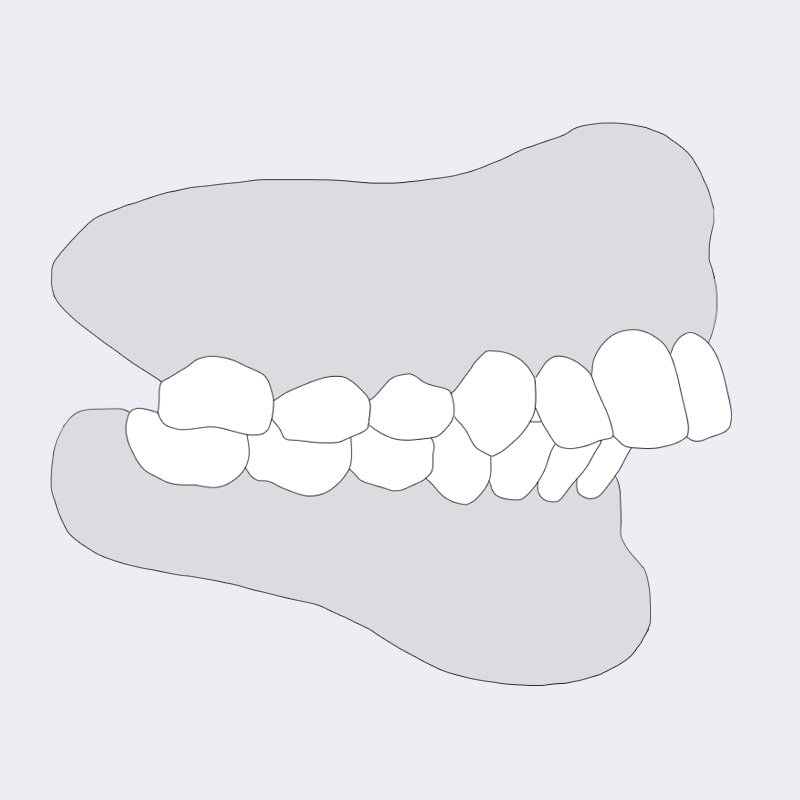
Overjet- protruding upper front teeth
Protruding upper front teeth often result in an anterior step, which is the distance between the upper and lower front teeth as seen from the side.
It is caused by the receding position of the lower jaw and the simultaneous protrusion of the upper incisors. This anomaly gets worse when the lower lip gets between the teeth or the child sucks.
Unforced lip closure is not possible, and the child breathes more through the mouth instead of the nose. As a result, the air breathed is not warmed and filtered and the child may get more colds and snores at night.
Early treatment is particularly important when the distance between the upper and lower anterior teeth exceeds 9 mm.
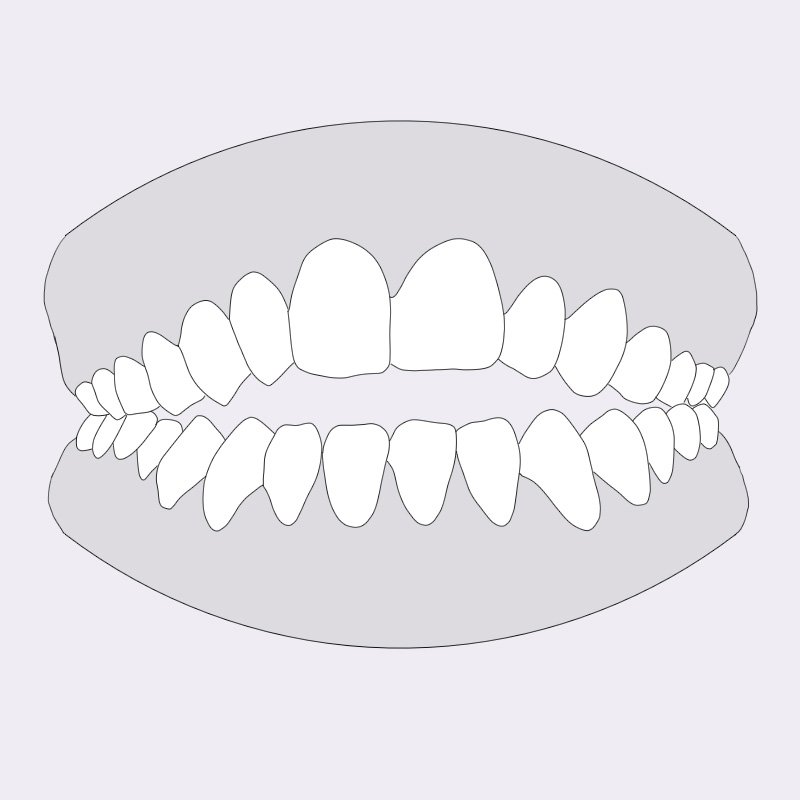
Open bite
The incisors are wide apart at the front. Biting is practically impossible, and the tongue gets between the teeth when speaking and the child lisps.
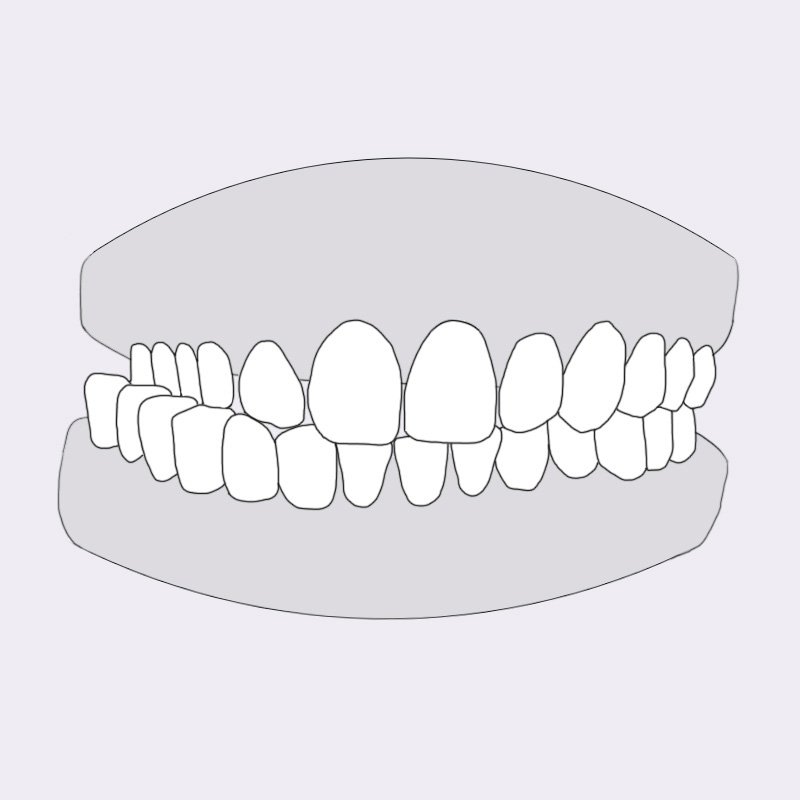
Lateral crossbite
Crossbite occurs when the upper teeth fit inside the lower teeth. In this case, the center of the lower jaw is shifted to the side of the crossbite.
This is caused by a too narrow upper jaw. As a result, the lower jaw has to deviate to the side when the teeth are added. This disturbs the natural development of the width of the upper jaw and the temporomandibular joints cannot develop symmetrically.
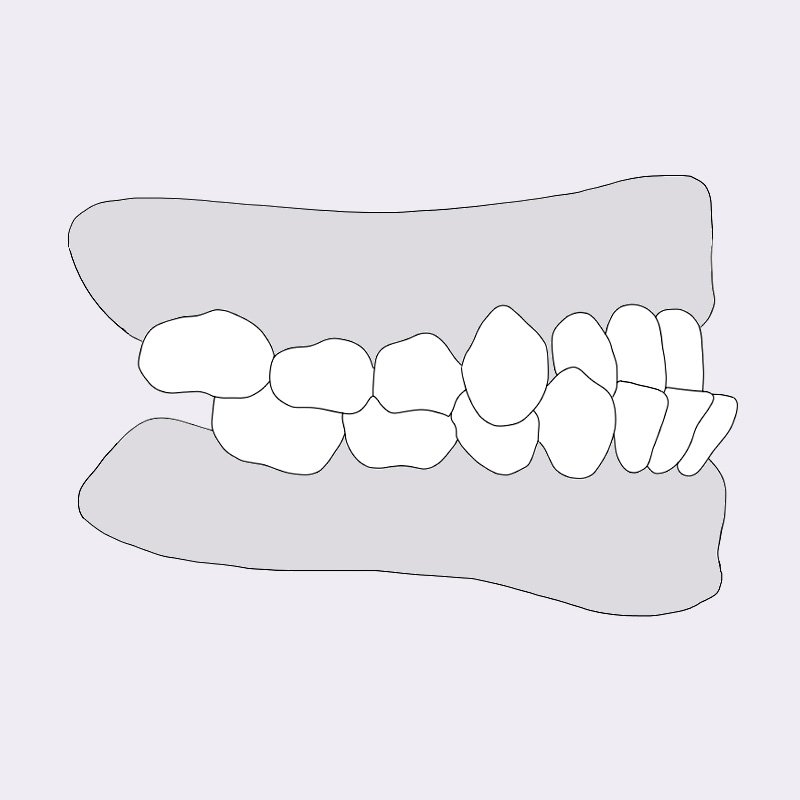
Frontal crossbite or inverted overbite
In the inverted upper bite, the upper incisors come in behind the lower incisors in an inverted manner. This impedes the natural growth of the upper jaw and allows the lower jaw to grow further and further forward. This leads to unequal growth of both jaws and incorrect loading of the teeth, which is then also transferred to the permanent dentition.
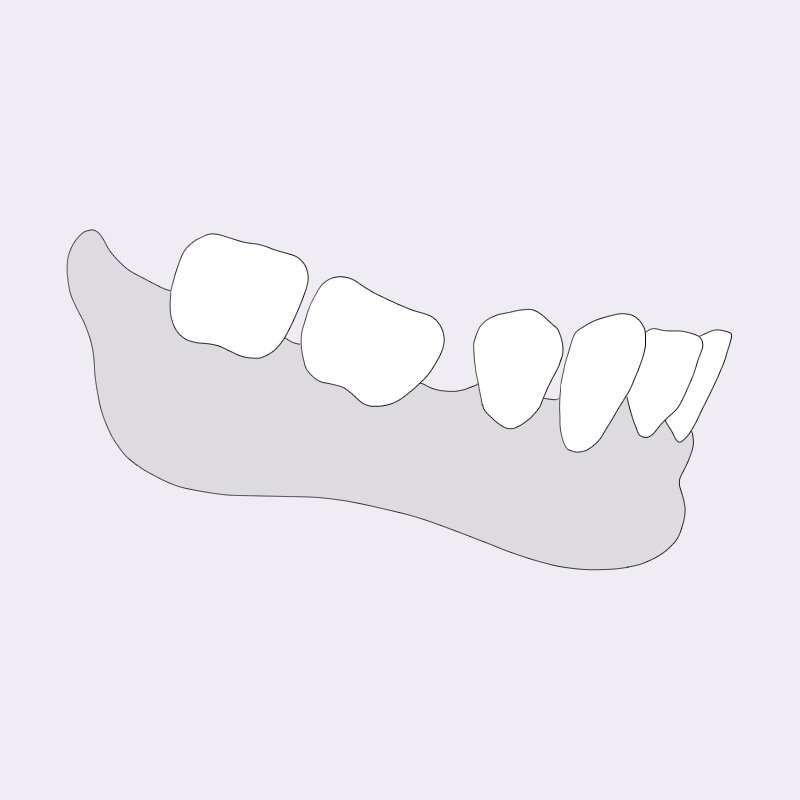
Prematurely lost milk teeth
Milk teeth are sometimes lost prematurely, i.e. due to caries or an accident, or simply because an overgrown permanent tooth loosens the neighboring milk tooth at the same time.
Then sometimes a so-called space maintainer must keep the space open. Otherwise, the neighboring teeth tilt or move into the gap and hinder the eruption of the permanent tooth. This then leads to a later crowding of the teeth in this area of the dental arch.
Start with a preliminary consultation
To ensure optimal and effective treatment, a consultative preliminary discussion and a comprehensive assessment of the patient's condition is a prerequisite.
A suitable and individually tailored course of treatment can only be determined for you after an exact diagnosis has been made and your individual wishes have been expressed. The necessary means of treatment and their costs will be arranged especially for you.
